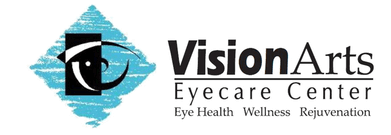Here’s what you need to know about keeping your eyes and vision healthy, and why you shouldn’t skip your annual eye exam.
Having healthy vision allows us to discover new information and experience life’s adventures. That’s why it’s important to keep those peepers healthy and safe.
Here are our top 5 tips for keeping your eyes and vision in great condition for a lifetime.
5 Ways To Maintain Great Eye and Visual Health
1. Wear Sunglasses Whenever You’re Outdoors
Sunglasses aren’t just a fashionable accessory — they actually play a key role in keeping your eyes healthy. The sun’s ultraviolet (UV) rays can cause sight-threatening conditions like cataracts, macular degeneration, and glaucoma.
You should wear your sunglasses any time you are outdoors, whether it's cloudy and overcast or hot and sunny. Sport your shades year-round for optimal eye protection.
Be sure to choose a quality pair of 100% UVA/B sunglasses. Sunglasses that don’t offer UV protection can actually harm your eyes.
2. Include Eye-Healthy Foods In Your Diet
Here’s a way to keep your eyes healthy from the inside out: eat foods rich in vitamins, minerals, and other nutrients that are essential for keeping your eyes seeing well and feeling good. You may even be able to ward off sight-threatening diseases like cataracts and age-related macular degeneration.
Try to include foods like salmon, tuna, green leafies, sweet potatoes, pumpkin, citrus fruits, eggs, beans, and nuts.
3. Make Sure You’re Wearing The Correct Prescription
Wearing glasses and contact lenses with the wrong prescription can be a headache — both literally and figuratively. If you experience eyestrain, headaches, or eye discomfort, there’s a good chance you may not be wearing the most accurate prescription.
Good vision should be comfortable, so call VisionArts Eyecare Center if your prescription lenses are causing you any trouble.
4. Wear Protective Eye Gear
A whopping 90% of all eye injuries could be prevented if people wore protective eyewear. Be sure to wear the appropriate eyewear when performing hazardous tasks like yard work, when using power tools, or when handling potent chemicals.
5. Visit Your Eye Doctor
This may be the most important thing you can do for your eyes and vision. Regular comprehensive eye exams can help detect serious eye conditions and diseases like glaucoma, age-related macular degeneration, cataracts, and diabetic retinopathy early enough to prevent or halt vision loss.
Children should undergo yearly eye exams to ensure healthy visual development and clear eyesight, both of which contribute to overall success.
Many eye diseases can be quickly and easily diagnosed during a Comprehensive eye exam, Pediatric eye exam and Contact lens eye exam. If you were diagnosed with an eye disease, such as Cataracts, Astigmatism, Pink Eye or conjunctivitis Myopia or Nearsightedness , Glaucoma, Macular degeneration, Diabetic retinopathy, or Dry eye, you may be overwhelmed by the diagnosis and confused about what happens next. Will you need medications or surgery – now or in the future? Is LASIK eye and vision surgery an option for you ? Our Fulton eye doctor is always ready to answer your questions about eye disease and Contact lenses.
Book an eye exam at VisionArts Eyecare Center eye clinic near you in Fulton, Missouri to learn more about your candidacy for contact lenses and which type is right for you. Call 573-641-2103
VisionArts Eyecare Center, your Fulton eye doctor for eye exams and eye care
Alternatively, book an appointment online here CLICK FOR AN APPOINTMENT
FOLLOW US
-
Aren’t sunglasses really only needed in the summer?
No. Although we think of summer when we think about sunglasses, the damage from UV radiation occurs year-round. Long-term exposure to UV has been shown to increase the risk of cataracts and macular degeneration.
-
I see fine. Why do I need to see an Eye Doctor?
Regular eye exams are the only way to catch “silent” diseases such as diabetes, glaucoma, and other conditions in their early stages when they’re more easily managed or treated. Many conditions can be discovered in a carefully planned eye exam. Those who consider mass-produced, over-the-counter reading glasses are truly doing themselves a disservice, both financially and medically. One-size-fits-all reading glasses not only do not work well for most people who have a different prescription in each eye, and/or astigmatism, or whose lens and frame parameters are not measured correctly, they bypass the opportunity to have their eyes checked for early detection of many manageable diseases or conditions. For those insisting on selecting glasses not measured specifically for their eyes, headache and eye fatigue are common symptoms.
-
My vision seems fine. That means that my eyes are healthy, right?
Unfortunately, no. Most eye diseases will not affect your vision until they are quite advanced. The only way to determine if your eyes are really healthy is to have them examined.
-
Does reading my smart phone or tablet in the dark damage my eyes?
Reading from a tablet or smartphone in the dark is okay for your eyes, as long as this is not for a long period of time. There is good lighting from these devices, with good contrast. There is, however, the blue light emitted from these devices. Blue light is a short wavelength light, with high energy that may cause damage to the structures of the eye if exposed for a long period of time. As well, studies have shown this blue light can disrupt melatonin production which is required for a healthy sleep cycle. Doctors of Optometry recommend limiting screen use during the last hour before bedtime.

